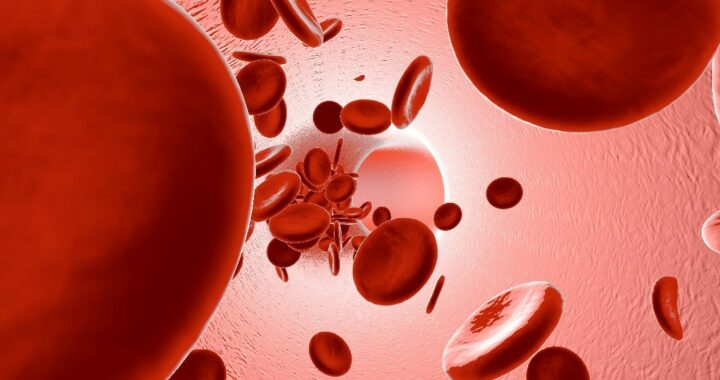Anemia occurs when there are not enough red blood cells in the body. Anybody can develop anemia, but it is very common in people with CKD. Anemia may begin to develop in the early stages of kidney disease when you still have 20 to 50 percent of your normal kidney function. Anemia tends to worsen as kidney disease progresses.
Causes of Anemia in CKD-
There are two main causes of Anemia in CKD-
- CKD & Erythropoietin (EPO)
Kidneys make a hormone called erythropoietin (EPO) that, in turn, makes blood. Kidneys may not be able to assist the body make the red blood cells it needs if kidneys are not functioning properly. Anemia is a common side effect of kidney disease. Anemia happens when your red blood cells are in short supply. Red blood cells give energy for daily activities as they carry oxygen from the lungs to all parts of the body. Most people with kidney disease will develop anemia. Anemia can happen early in the course of kidney disease and grow worse as kidneys fail and can no longer make EPO.
- CKD & Iron
The human body uses iron to make red blood cells. Iron deficiency is the common cause of anemia in people with CKD. Iron deficiency means you do not have enough iron in your body. It can be caused by not getting enough iron in your diet or by losing blood, either through blood tests or during dialysis.
Causes of Iron Deficiency-
- Not eating enough foods that are rich in iron
- Iron from food is not being absorbed properly into bloodstream
- Frequent blood donation or testing may increase demand for iron
- Blood loss from dialysis
Anemia in CKD is more common if you:
- Have diabetes
- Have heart disease
- Have high blood pressure
- Are African-American
- Are older than 75 years
What are the symptoms of anemia?
Anemia can cause you to:
- Look dull
- Feel exhausted or feeling tired
- Have less energy for daily activities
- Have a low appetite
- Have difficulty sleeping
- Feel dizzy or have headaches
- Have a fast heartbeat
- Feel short of breath
- Chest Pain
Diagnosis Treatment-
An evaluation by a physician is necessary and will include tests for iron deficiency and blood loss in the stool to be certain there are no other reasons for the anemia.
A physician diagnoses anemia based on-
- Medical history
- Physical exam
- Blood tests
Medical History
Taking a medical history
is one of the first things a physician may do to diagnose anemia. A physician will usually ask about the patient’s symptoms.
Physical Exam
A physical exam may help diagnose anemia. During a physical exam, a physician usually examines a patient’s body, including checking for changes in skin color.
Blood Tests
To diagnose anemia, a physician may order a complete blood count, which measures the type and number of blood cells in the body. A physician will monitor the amount of hemoglobin in the patient’s blood, one of the measurements in a complete blood count. If the patient has a hemoglobin of 11 or less, he/she is considered anemic with the most likely cause being decreased EPO production
Treatment-
A physician will provide one or more of the following treatments to cure anemia:
- Iron- The first step in treating anemia is raising low iron levels. Iron pills may help improve iron and hemoglobin levels.
- Erythropoietin- Treatment can include injections of a genetically engineered form of EPO, if blood tests indicate kidney disease as the most likely cause of anemia. Injections are given with EPO subcutaneously, or under the skin, as needed. Patients on hemodialysis may receive EPO intravenously during hemodialysis. Please note that currently, we do not provide EPO or IV iron in our practice.
- Red Blood Cell Transfusions- A physician may prescribe a red blood cell transfusion, if a patient’s hemoglobin falls too low. Transfusing red blood cells into the patient’s vein increases the percentage of the patient’s blood that consists of red blood cells, this increases the amount of oxygen available to the body.
- Vitamin B12 and Folic Acid Supplements- A physician may suggest vitamin B12 and folic acid supplements for some people with CKD and anemia. Using vitamin supplements can treat low levels of vitamin B12 or folic acid and help treat anemia. To help ensure coordinated and safe care, people should discuss their use of complementary and alternative medical practices, including their use of dietary supplements, with their health care provider.
- Eating, Diet, and Nutrition- A physician may include sources of iron, vitamin B12, and folic acid in the diets. Some of these foods are high in sodium or phosphorus, which people with CKD should limit in their diet. A dietitian can help a person plan healthy meals.
If you have CKD, getting early treatment for your anemia can help slow the progress of your CKD. If you think you might have anemia, visit our physician. To book an appointment with us, please call us- Chester County (610) 524-3703, Delaware County (610) 872-8501, Northern Delaware & Southwestern Philadelphia County (610) 534-6230 Or visit- https://clinicalrenal.com/offices/

